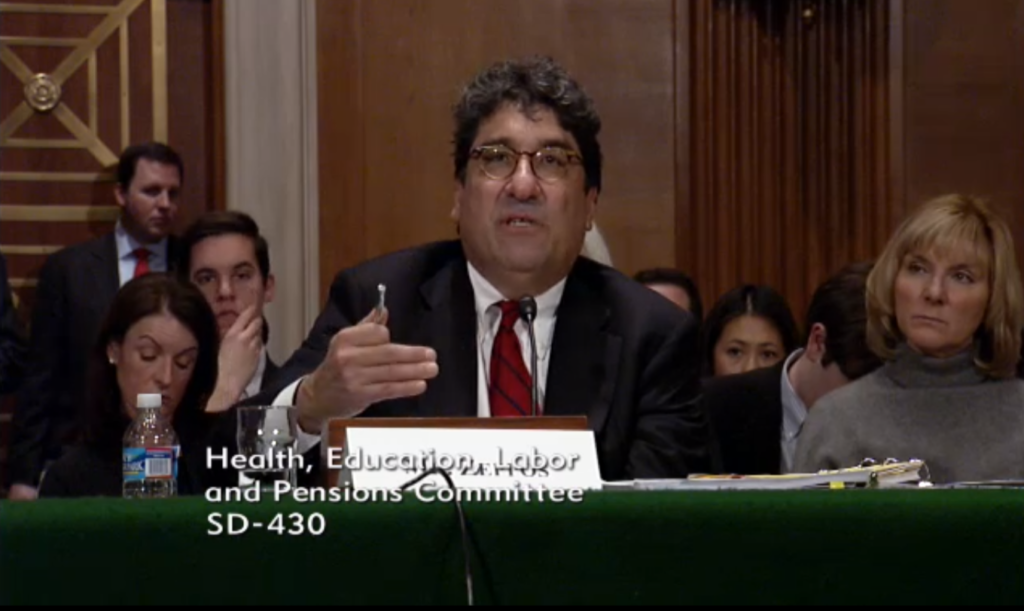
Vanderbilt University spends $14 million a year complying with federal higher education regulations, its chancellor told the U.S. Senate Education Committee. His point: That number is too high.
Nicholas Zeppos, along with the chancellor from the University of Maryland, presented a 144-page report Tuesday laying out how to fix poorly designed regulations from the U.S. Department of Education. According to the report, colleges spend too much time and money filling out outdated surveys, writing pointless policies and sifting through hundreds of pages of complicated federal mandates.
Money Saved?
But things got a little heated when Sen. Elizabeth Warren, a Democrat from Massachusetts, asked Zeppos where Vanderbilt’s $14 million in savings would go.
“That’s about $1,100 per student at Vanderbilt,” she said. “So if we were to follow the recommendations in the report and repeal those regulations this year, would Vanderbilt commit to reduce its tuition by $1,100 per student?”
“Well, I don’t think we asked for
all
the regulations to be eliminated,” Zeppos
replied, before Warren jumped in:
“I can do the math. You want to do $650 for half the regulations?” she said.
“I just think if we’re going to talk about reducing those regulations, … let’s estimate the cost and bring down those costs for students.”
Zeppos said the savings could go toward areas of the university that are
“woefully underinvested.
“
“I understand the temptation to say, ‘I will promise to cut,’ ” he said. “But I do think we should have the freedom to say, ‘This is an area of underinvestment.’ “
For example, he said, if Vanderbilt could spend less money on federal regulations, it might increase funding for scientific research or study abroad programs instead of cutting tuition.
More Room For Improvement
Zeppos also noted that the university spends an even larger chunk of its budget — about $130 million, or $10,200 per student — to comply with research-related regulations, compelled by federal research organizations. Sen. Lamar Alexander (R-Tenn.) briefly mentioned he
thinks those regulations should be addressed as well.
“Your subject is the Department of Education, not this,” he told Zeppos and the University of Maryland chancellor. “But that’s something we could consider.”


